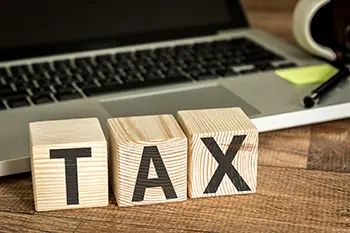
Table of Content
Are equity investments really tax-efficient? That is a question that many investors have. To begin with, equity investment is not your typical Section 80C investment that gives you a tax exemption. But there are quite a few benefits that you can avail from investing in equities. Let us look at some of them.
The Rajiv Gandhi Equity Savings Scheme (RGESS) was launched in the 2012 Budget to incentivize small and first-time investors to participate in the equity markets. Under this scheme, new investors in equities with an annual income of up to Rs12 lakh can avail exemption to the tune of 50% of the amount invested in equities subject to a maximum of Rs50,000. So if a first-time investor allocates Rs50,000 to equities, then an exemption of Rs25,000 can be deducted under Section 80CCG from the total taxable income. This benefit can be availed over a period of three years.
This is not direct equity but an indirect equity investment. Equity-linked savings schemes (ELSS) are equity mutual funds that come with a 3-year lock-in period. Investments up to Rs1.50 lakh per financial year can be claimed under this section. However, it needs to be noted that Rs1.50 lakh is an umbrella exemption limit and includes other investments and outlays, including PPF, CPF, long-term deposits, ELSS, ULIPs, tuition fees, life insurance premium, the principal component of a home loan, etc. All investments in ELSS funds are subjected to a mandatory lock-in period of 3 years from the date of investment.
The reason equities become tax-efficient through a stock market app is that they get preferential treatment when it comes to short-term capital gains. Firstly, the definition of short-term gains is if the equity is held for less than a year. For other assets, it varies from 2 to 3 years. Secondly, the rate of short-term capital gains tax on equities is also lower. While STCG on other assets is levied at the peak rate applicable to the taxpayer, STCG on equities is charged at a concessional rate of 15%.
Preferential treatment for long-term capital gains on equities
Like in the case of STCG, long-term capital gains also get preferential treatment in terms of tenure and the rate of taxation. For most assets, the definition of LTCG is a minimum holding period of 2 years or 3 years. However, in the case of equities, the definition of LTCG is if the equity stock has been held for more than a year. What about rates? Till March 2018, LTCG on equities were entirely tax-free in the hands of the investor. However, effective April 2018, LTCG on equities is being taxed at a flat rate of 10%. Of course, there is a basic exemption of Rs1 lakh that is available for each financial year but the downside risk is that it comes without the indexation benefit. That has surely reduced its relative attractiveness.
What about dividends? Compared to interest income, dividends continue to be relatively less burdensome. However, there are three things to remember. Firstly, dividends are post-tax appropriation. Secondly, dividends are subject to dividend distribution tax (DDT) of 15% plus surcharge and cess. This reduces the dividends in the hands of the investor. Lastly, effective April 2016, dividends beyond Rs10 lakh are additionally taxable in the hands of the investor at the rate of 10%. That needs to be factored in!
Invest wise with Expert advice
![]() IIFL Customer Care Number
IIFL Customer Care Number
(Gold/NCD/NBFC/Insurance/NPS)
1860-267-3000 / 7039-050-000
![]() IIFL Capital Services Support WhatsApp Number
IIFL Capital Services Support WhatsApp Number
+91 9892691696
IIFL Securities Limited - Stock Broker SEBI Regn. No: INZ000164132, PMS SEBI Regn. No: INP000002213,IA SEBI Regn. No: INA000000623, SEBI RA Regn. No: INH000000248
ARN NO : 47791 (AMFI Registered Mutual Fund Distributor)

This Certificate Demonstrates That IIFL As An Organization Has Defined And Put In Place Best-Practice Information Security Processes.